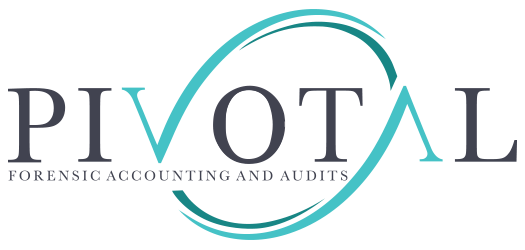Business,Corporations,Editorial,Payroll Accounting,Public & Personal Accounting,Small Business,Tax Accounting,Tax Consultancy,Tax Preparation
Why Consider an S Corporation for Your Business
Why Consider an S Corporation for Your Business
When launching or growing a business, choosing the right legal structure can dramatically impact your taxes, liability, and long-term financial flexibility. One option that often stands out for small business owners is the S Corporation (S Corp)—a structure that combines corporate protection with pass-through tax benefits.
Understanding What an S Corporation Is
An S Corporation isn’t a type of business entity but rather a tax election made with the IRS. Businesses that qualify—often those that begin as LLCs or corporations—can elect S Corp status to be taxed as a pass-through entity.
This means that profits and losses pass directly to the owners’ personal tax returns, avoiding double taxation at the corporate level. Essentially, an S Corp allows you to operate like a corporation while still benefiting from the personal tax simplicity of a sole proprietorship or partnership.
Why the S Corp Structure Matters
An S Corp can be an excellent choice for self-employed professionals, consultants, and small business owners looking to minimize tax liability and formalize their business operations. It’s especially appealing to those who earn a moderate to high net income and wish to pay themselves a reasonable salary while taking the remaining profits as distributions—reducing self-employment taxes in the process.
Key Advantages of an S Corporation
1. Significant Tax Savings
Unlike a C Corporation, which pays corporate taxes and then taxes shareholders again on dividends, an S Corp is a single-layer tax structure. Owners pay taxes only once—on their share of profits.
Perhaps the most attractive benefit is the reduction in self-employment taxes. As an S Corp owner, you can pay yourself a “reasonable salary” (subject to employment taxes) and take additional profits as distributions, which are not subject to Social Security and Medicare tax. The savings can be substantial, particularly as your business income grows.
2. Liability Protection
Like traditional corporations and LLCs, an S Corp provides limited liability protection. This means your personal assets—such as your home, car, and personal savings—are protected if your business faces lawsuits or debts.
3. Business Credibility and Professional Image
Incorporating as an S Corp often enhances your company’s credibility with clients, suppliers, and partners. It communicates professionalism, permanence, and financial structure—key signals for lenders, investors, and potential collaborators.
4. Access to Corporate Benefits
S Corp owners can access corporate-level benefits typically unavailable to sole proprietors. This includes the ability to establish retirement plans, contribute pre-tax funds, and access broader health insurance options. These benefits can lead to long-term wealth accumulation and tax advantages for the owner and any employees.
5. Ease of Ownership Transfer
Transferring ownership or adjusting stock basis is generally straightforward and doesn’t trigger adverse tax consequences. This flexibility makes the S Corp ideal for growing businesses planning for future investment or succession.
Comparing S Corps to Other Business Structures
S Corp vs. LLC
Both LLCs and S Corps provide limited liability and pass-through taxation, but there are key differences.
-
LLCs offer greater flexibility in management and profit distribution, but members must typically pay self-employment tax on all profits.
-
S Corps, on the other hand, require more formal compliance—board meetings, payroll filings, and shareholder restrictions—but can significantly reduce self-employment taxes through salary/distribution separation.
If you’re an LLC owner who consistently earns over a certain threshold, electing S Corp status could lead to thousands in annual tax savings.
S Corp vs. C Corp
The primary distinction lies in tax treatment.
-
C Corporations face double taxation—once at the corporate level and again on shareholder dividends.
-
S Corporations pass income directly to shareholders, avoiding this duplication.
However, C Corps can attract multiple classes of stock and unlimited shareholders, while S Corps are limited to 100 shareholders who must be U.S. citizens or residents. For small businesses focused on tax efficiency rather than large-scale fundraising, S Corp status is often the smarter choice.
How an S Corporation Operates
Running an S Corp means wearing two hats—employee and owner.
The Employee Role
As an employee, you must pay yourself a reasonable salary comparable to others in your industry. The IRS closely monitors this to prevent abuse of the S Corp tax advantages.
-
You’ll receive a W-2 paycheck and pay employment taxes on that salary.
-
Your business can reimburse you for legitimate expenses, such as business mileage or home office costs.
-
You can also participate in company-sponsored retirement or health plans.
The Owner Role
As the shareholder, you can take additional profits as dividends or distributions. These are generally not subject to payroll taxes, creating a major tax advantage. Additionally, your personal assets remain protected, and you can plan for future retirement and wealth accumulation more effectively.
Key Requirements and Compliance Considerations
1. Tax Filings
Even though S Corps are exempt from federal corporate tax, they must still file annual returns using Form 1120-S. Each shareholder also receives a Schedule K-1, reporting their share of income, losses, and credits.
Tax filings are typically due by March 15, though extensions can be requested with Form 7004. Unlike C Corps that file quarterly, S Corps usually file once per year.
2. Payroll Management
Because S Corps require owners to receive a salary, you must maintain a proper payroll system.
-
File federal and state payroll reports quarterly and annually.
-
Issue W-2s to yourself and any employees.
-
Ensure your compensation meets the “reasonable salary” standard (often 25-50% of business income, depending on your industry).
Engaging a professional accountant or payroll provider can help you remain compliant and avoid IRS penalties.
3. Business Banking and Financial Separation
One of the most common mistakes small business owners make is mixing personal and business finances. For an S Corp, maintaining financial separation is not optional—it’s a legal requirement.
Open a dedicated business bank account and consider a business credit card to streamline expenses, manage cash flow, and build your company’s credit history. Commingling funds can result in audit risk or even loss of liability protection.
4. Registered Agent and State Requirements
Every S Corp must maintain a registered agent in the state of incorporation and pay any required filing fees. Annual reports or state taxes may also apply, depending on where your business operates.
Disadvantages and Challenges
While the S Corp offers strong tax and liability advantages, it comes with increased complexity compared to a sole proprietorship or single-member LLC.
-
Initial setup costs and ongoing compliance can be higher.
-
The IRS carefully monitors reasonable compensation to prevent underpayment of employment taxes.
-
Shareholder restrictions mean no foreign ownership and a limit of 100 shareholders.
-
Distributions must follow ownership percentage—profits can’t simply be divided at will.
These complexities underscore the value of professional guidance when setting up and maintaining an S Corporation.
Is an S Corp Right for You?
The S Corporation structure works best for:
-
Self-employed individuals earning steady, moderate to high profits.
-
Small businesses with a manageable number of shareholders.
-
Owners who wish to balance tax efficiency with formal corporate structure.
Before you file for S Corp status, consult a qualified financial or tax advisor. The correct setup ensures compliance and maximizes benefits. Your accountant can help determine a reasonable salary, manage your Form 1120-S filings, and structure your payroll and distributions appropriately.
At Pivotal Forensic Accounting & Audits, we assist business owners in understanding the advantages and risks of S Corporation election. Our team can help with:
-
Entity selection and setup
-
Payroll system implementation
-
Tax planning and filing
-
Compliance and audit readiness
Final Thoughts
An S Corporation can offer tremendous tax advantages and a higher level of professionalism for your business—provided it’s structured and managed properly. With the right guidance, your S Corp can help you save on taxes, protect your assets, and create a scalable foundation for long-term success.
For assistance establishing or optimizing your S Corporation, contact:
Pivotal Forensic Accounting & Audits
(253) 752-3920 – Tacoma, Washington


